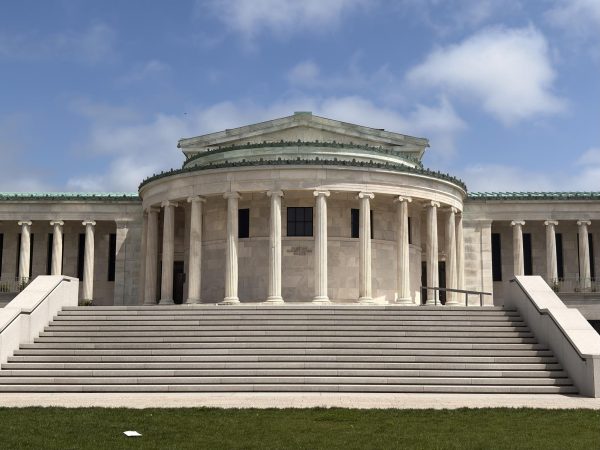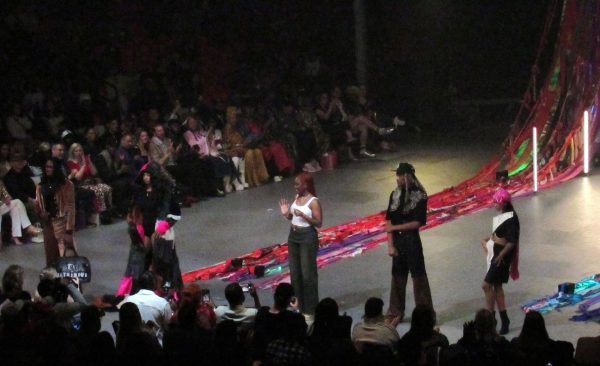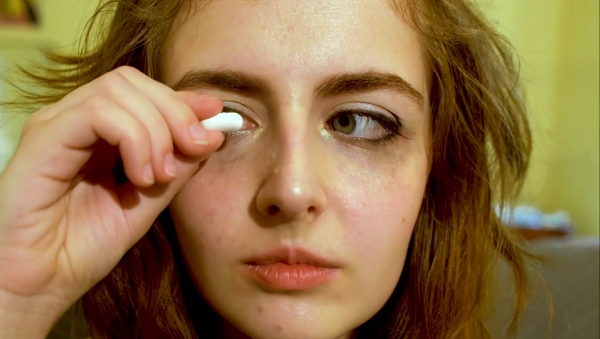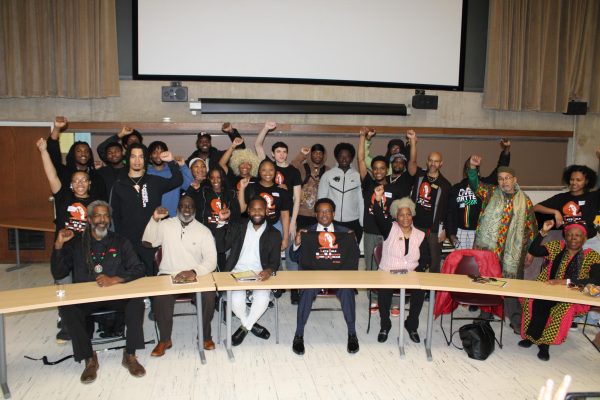Anne Frank Project extends legacy of Holocaust victim, preaches against ‘bystander effect’
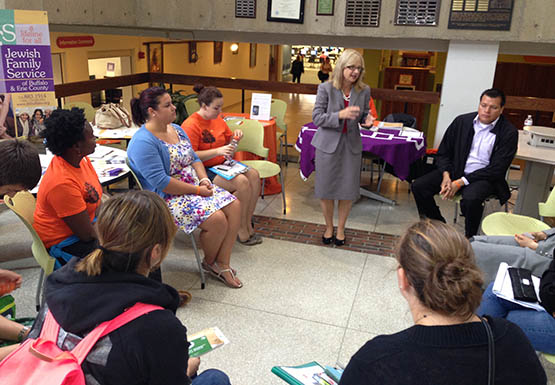
Susan McCartney speaks to a group of students and community leaders at the Community Engagement Center.
The campus was flooded last week with students, staff and visitors who were all inspired to change the world, and many were proudly dressed in orange.
The fifth annual Anne Frank Project took place last Tuesday-Friday, starting with a youth conference and ending with a closing ceremony.
“AFP2013: Transforming Lives” was led by director Drew Kahn and assistant director Eve Everette, with the assistance of their tech crew and plenty of volunteers.
“I’m extremely proud and my heart is filled with pride, first as a teacher and second as the director,” Kahn said. “I confess that I’m not trained to be the director of a not-for-profit social justice initiative, but I’m honored to drive this very big ship.”
Everette said that a lot of the feedback she received about the conference was in regards to how hard the volunteers were working to make guests feel like family.
“They had positive energy and it touched all the guests,” Everette said. “They felt that they were interested in the project, and it was a huge success.”
With a lot of one-on-one interaction through many different mediums, including plays, concerts, exhibits and lectures, Buffalo State became a hub of people who were determined to no longer be bystanders. Speakers from all over the nation and beyond shared their thoughts throughout the conference on finding solutions for ending genocide, intolerance, bigotry and racism in an effort to improve people’s quality of life.
“This conference is a gem,” Don Erwin, chief information officer, said. “It highlights that the campus is deeply rooted in diversity and focuses on solving problems all over the world.”
Erwin said that this conference is successful because it presents the problems that people are facing, but gives students the resources to help find solutions.
“In the news, we only hear about wars and groups not getting along,” Erwin said. “We only hear about the bad, but there are good things going on. Our students attend a school that places a lot of importance on these problems. People can have a positive impact. We need to ask ourselves ‘What can I do?’”
Julie Caradori, a junior majoring in psychology, attended “Teaching the Holocaust,” featuring Sandy Saada and Marilyn Toth, who spoke about how history repeats itself and told attendees that they need to be aware.
“I liked how it gave a fresh perspective because we’re so used to what the history books say, but to actually see people who care so much to still want to try and change the world is so inspiring to me,” Caradori said.
Erwin also attended a few sessions, including “Genocide, Devastation, and Post-War Challenge,” featuring Bill Lin speaking about his parents’ experience in the Holocaust during World War II.
“I was really touched,” Erwin said.
Lin spoke to the crowd about Holocaust deniers. He acknowledged that everyone in the room was alive during the 9/11 attacks 12 years ago, and he asked the crowd to imagine someone saying that those attacks didn’t happen.
“It’s up to us to carry on the message of history,” Lin said.
As the project continues, Kahn and Everette are going to keep the momentum going by considering the feedback from this year’s conference, start accepting proposals for next year, increase their marketing and keep collaborating with the AFP family. Kahn emphasized the student body as being the most important part of the “family.”
“It’s a monster of an initiative,” Kahn said. “It’s time for the AFP family to own the project, especially the conference.”
Everette agreed, saying that she doesn’t have to work hard to keep the morale high.
“It’s time for the students to get loud, and pass on the story with the AFP inspiring them,” Everette said.
Colleen Young can be reached at [email protected].


